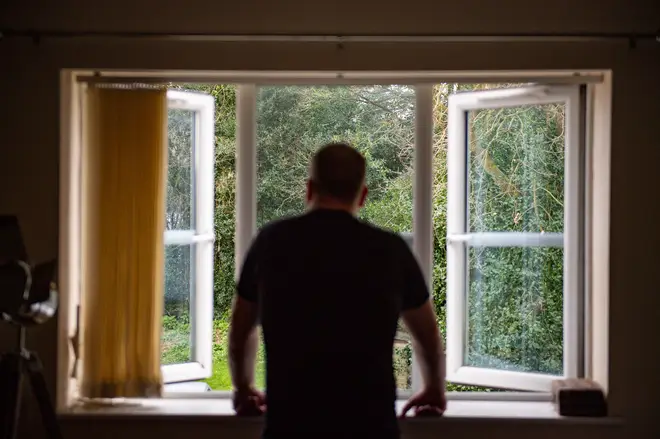
Ben Kentish 10pm - 1am
30 April 2020, 15:31 | Updated: 7 June 2023, 08:56

Natasha Devon is the host of the Staying Sane in Quarantine podcast and founder of Where's Your Head At. She gave LBC some key tips for how to look after your mental health during the lockdown.
Feelings of stress and anxiety are a completely normal response to our unusual circumstances. However, it’s still important that we address and, where possible, counteract them.
Stress can cause an excess of the hormone cortisol in our bodies, which increases our vulnerability to depression over time. The anxiety chemical adrenaline has been shown to have an adverse effect on our immune system – the very last thing anyone needs, at the moment.
Below are some tips for managing your mental health and regulating your chemical balance, whilst in lockdown.
You don’t necessarily have to get up at the same time as you would have done if you were going out to work, but you should aim to wake up and go to bed at approximately the same time each day.
Sleeping too much or too little can both disrupt mental wellbeing. If you’re having difficulty drifting off, try doing something before bed that uses your imagination, like writing a story or visualising your dream holiday. The imagination is the doorway between conscious and unconscious thought and this should help you feel sleepy.
Whilst we’re currently allowed to leave the house once daily for a walk, cycle or run, the danger is that we become more sedentary when we are confined to the house. Physical activity has been shown to be as effective in combatting mild to moderate symptoms of depression as medication, so it’s important to take the opportunity to be active when we can.
If you’re really short of space or time then doing some simple stretches is a quick way to release feel-good endorphins.

Pick a media outlet you trust and check in once or twice per day. You can mute certain key words on twitter, if you want to keep up to date with your online community whilst swerving COVID panic and fake news.
You’ll also generally find picture or video-based social media sites like Instagram to be a much more positive online environment.
Whether it’s calling to check in on a friend or relative who lives alone, or texting your neighbour to ask if they want something when you venture out to the shop, contributing positively to the community not only has a positive impact on others, but has also been shown in numerous studies to increase our own wellbeing. Win/Win.
One of the reasons our brains invent catastrophic future scenarios is not only to help us prepare for if the worst should happen, but also because when we seek assurance that it probably won’t happen, it’s comforting. The brain’s fear/anxiety mechanism happens in the amygdala, which doesn’t know the difference between real and imagined dangers. So, the more you do this, the more anxious you’ll feel, the more reassurance you’ll seek and the whole thing will quickly end up being a vicious circle.
Instead, remind yourself that the past is unchangeable, the future unknowable and the only thing we can control is the present…
Mindfulness can help you to achieve the goal to staying in the moment. There are some great apps you can download to guide you if you’re new to meditation.
Belonging is absolutely crucial to mental health. Try to create digital versions of your usual social activities. Being able to see your friends’ face as you chat will increase your sense of community and genuine connection.